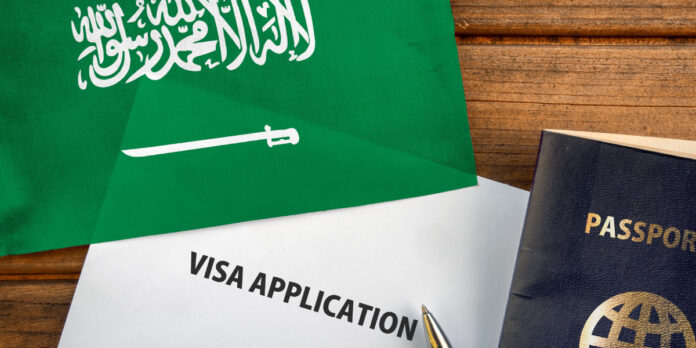In a major policy change recently, Saudi Arabia declared it would no longer accept the one-year multiple-entry visa for tourism, business, and family visits, effective from February 1, 2025. The announcements from the country indicate that the decision in the announcement inherently applies to travelers from India and 13 other states, whereby visitors will thus need to apply for single-entry visas valid for only 30 days. For Indian business professionals, frequent travelers, and families with ties to the country, travel just got expensive, lengths of delays just got longer, and bureaucratic hurdles were added in to make travel difficult, raising concerns about furthering trade, tourism, and economic relations between the two states.
What Does The New Policy Mean For Indian Travelers?
Earlier, multiple-entry visas could allow a person who frequently traveled to visit Saudi Arabia several times within a year while maintaining flexibility for business, tourism, and family visits. Following the new rules, each entry will now require a new visa application, further adding to the financial and administrative burden. According to reports, single-entry visas will take about 10 to 15 days to process, while the cost would rise by about 60%, from SAR 800 (around INR 18,000) to SAR 1,300 (about INR 29,200) for three trips a year.
This change particularly affects persons from industries such as IT, construction, healthcare, and trade, whereby frequent travel between India and Saudi Arabia is required to work on projects, conduct site visits, or attend client meetings. The policy also poses challenges for families who regularly travel to this country to visit relatives working there, as well as pilgrims who previously relied on multi-entry visas for religious visits outside of the Hajj season.
Additionally, the move has caused confusion among existing visa holders. Travelers with valid multiple-entry visas issued before February 1, 2025, are unsure whether they can still use them for the remaining duration, with no official clarification from Saudi authorities.
Industry Reactions: Business And Trade Disruptions
This has raised apprehensions on the part of Indian travel and business stakeholders about the abrupt shift, which is a logistical nightmare for professionals and enterprises that operate on both sides of the border. “The companies that were managing cross-border projects will be faced with scheduling constraints, and costs will increase,” said Rakesh Kumar, CEO of Al-Maha Tours, Mumbai.
According to the Indian Chamber of Commerce, this visa prohibition may cause a 10–15% dip in bilateral trade in the immediate future. Several Indian exporters and service providers raised concerns about delays in contract negotiations, site inspections, and supply chain coordination.
According to tour operators, there has been a 35% increase in inquiries from concerned travelers seeking alternative routes or extended stay options. “Saudi Arabia was emerging as a core tourism and business hub for Indian travelers, but this decision puts increased cost and inconvenience on the traveler,” said Anjali Mehta, a travel consultant in Delhi.
Impact On Pilgrimage Travel
Beyond business and tourism, the policy shift also affects religious travel. While Hajj visas remain unaffected, many Indian Muslims who perform Umrah or visit Saudi Arabia for religious purposes outside of Hajj season now face additional hurdles. Previously, many pilgrims used multiple-entry visas to combine religious and family visits, but the new rules mean each trip will require a separate application.
Diplomatic Efforts And Possible Alternatives
The Indian government, through its embassy in Riyadh, is in discussions with Saudi authorities to reconsider the decision or introduce exemptions for business travelers, religious visitors, and frequent travelers with a history of compliance. However, Saudi officials have defended the move as part of a broader effort to streamline immigration, enhance security, and support Vision 2030’s goal of attracting high-value tourism and investments.
While no official exemptions have been announced, some travelers are considering workarounds, such as applying for 96-hour transit visas or seeking visas through GCC-based sponsors. However, these options are not viable for all travelers, particularly those who need to visit Saudi Arabia multiple times a year.
Long-Term Impact And Regional Competition
Analysts believe this policy shift could push Indian businesses and tourists toward alternative destinations such as the UAE and Qatar, which maintain more flexible visa policies. India is one of Saudi Arabia’s largest tourism and trade partners, contributing 12% of its tourism revenue and 8% of its non-oil imports. Any long-term restrictions on travel could affect Saudi Arabia’s economic engagement with India.
Moreover, the decision comes at a time when Saudi Arabia is actively competing with the UAE to position itself as a regional business hub. Restrictive visa policies could deter foreign businesses from setting up operations in Saudi Arabia, redirecting investments to more accessible markets.
“This isn’t just about visas—it’s about trust,” said Riyadh-based policy analyst Dr. Ahmed Al-Fares. “Saudi Arabia risks alienating a critical partner if it doesn’t align security goals with pragmatic solutions for reliable travelers.”
Conclusion
As Saudi Arabia reshapes its visa policies, Indian travelers and businesses are facing rising costs and bureaucratic delays. The immediate effects are already being felt across industries, and unless diplomatic efforts result in exemptions or alternative solutions, the new rules could redefine travel and economic dynamics between the two nations. While discussions between Indian and Saudi authorities continue, frequent travelers brace for a more expensive and restrictive visa regime, with long-term consequences still unfolding.


